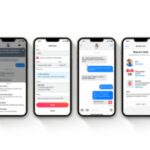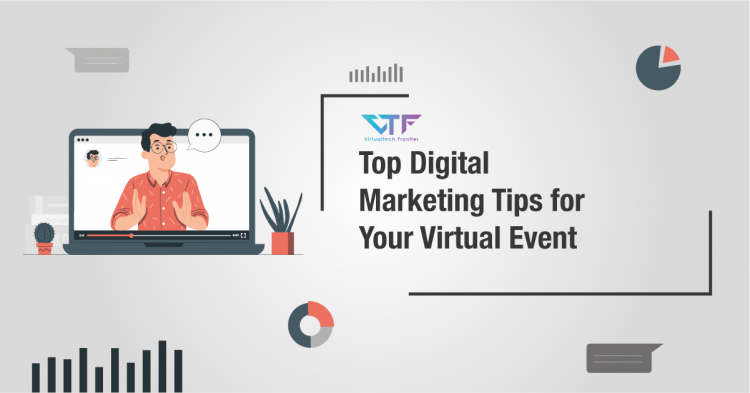A virtual event is not only just a tool to use when thereâs no other choice, it also come with many benefits over physical events! Here are our top digital marketing tips to boost your virtual events.
Content Creation
When it comes to any type of marketing, content is always key. Exciting content that is relevant to your virtual event is a vital way to reach your potential audience and get people to register and attend. Think through your audience’s perspective and tie in your content with how your audience can benefit from you. There are also many varieties of content that you can create besides the standard image and videos, including podcasts, e-books, blog articles, and infographics with data or topics.
Landing Page
Before starting your marketing efforts, get your event landing page up and ready. Having a unique event landing page can help to build credibility and generate interest for your brand. It is also important as an information hub for your visitors, where your attendees can find general information regarding the event. Embed all relevant videos, images, and other media in the event landing page. Make sure that your landing page contains event details with the following sections:
- Dates and times
- Agenda
- Summary of each Session (Keynote, Panel, Workshop, etc)
- Registration
- Socially shareable
Plan your Budget
Before carrying out your marketing strategies, you’ll need to plan your budget carefully. Since you’ll want to invest in marketing on multiple channels, you need to know how much you can spend on each. Break down each channel and see how much it costs to run a campaign to advertise your event. With social media ads and pay per click channels, you can control your budget. Since you’re able to determine how much you want to spend on your ads, you have a little more flexibility in terms of how much you spend. Other strategies, like email marketing and search engine optimization, may require you to spend a certain amount to have an effective campaign.
Paid Ads Channels
There are many options out there to promote your virtual event that you can consider when it comes to platforms, formats, and objectives. When promoting your event, your main objective will be to drive traffic to your event landing pages. Reach a wide audience using social media ads such as YouTube, Facebook, Instagram and LinkedIn ads. Each social network has different formats that are only limited by the strategy and creativity of the advertisers, so choose the one that is relevant to your event and target audience. With the different tracking tags such as Google conversion tracking, Facebook pixel, Google Analytics etc., you can create more advanced paid campaigns through Remarketing and personalized audiences.
Email Marketing
Setting up an email marketing strategy must begin with your database. Carry out segmentation on the database that you have collected to ensure that you’re sending them to relevant personnel. Encourage your current clients to register and participate in the event. You can also send out follow-up emails prior to the event, and reminders to remind them to attend the event. Reminder emails should be sent days, hours and minutes before the event or the start of a particular session. It’s also important to offer the attendees the ability to schedule the event in their digital calendars such as Outlook, Google, or Apple.

















